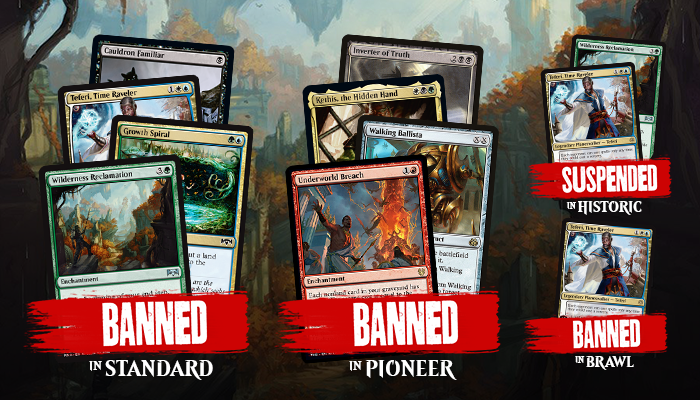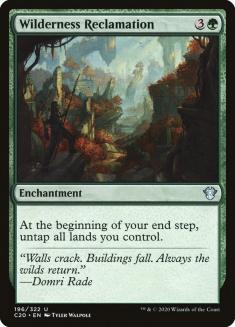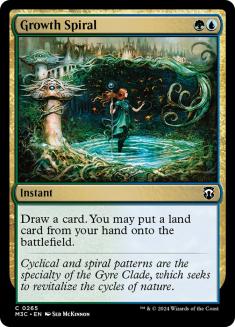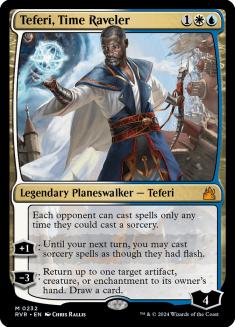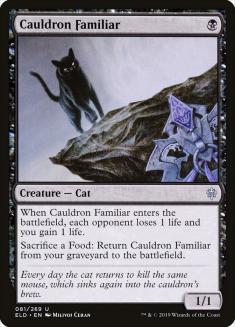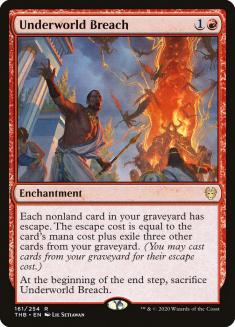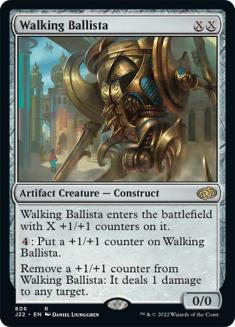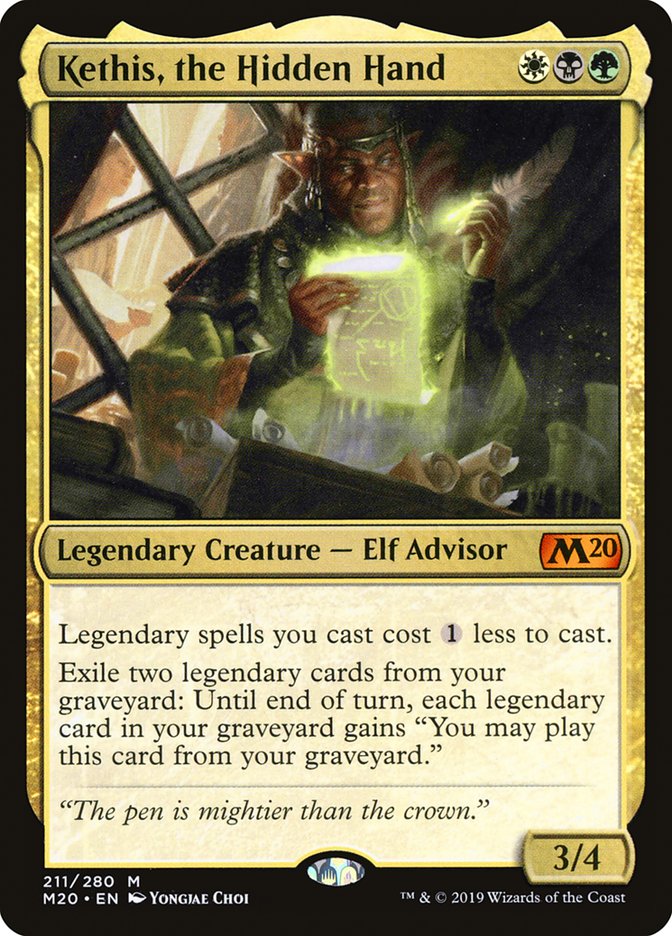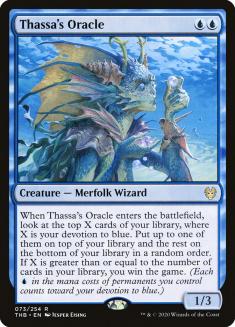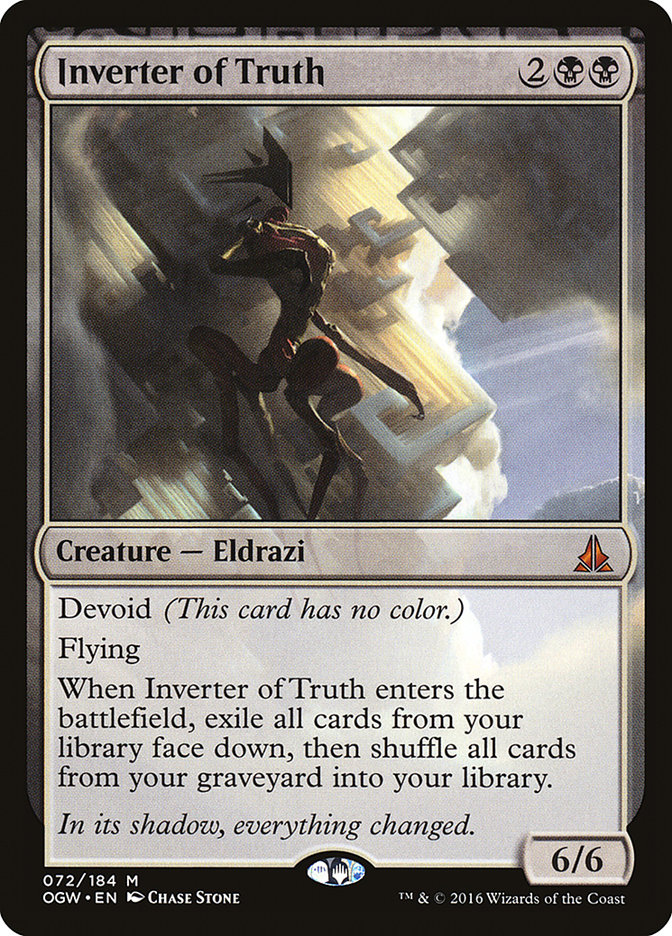Welcome to another edition of Fact or Fiction! Today, Paulo Vitor Damo da Rosa, Sam Black, and Michael Majors give their takes on five statements about the surprise August 3 Banned & Restricted Announcement. Don’t forget to vote for the winner at the end!
1. Banning Wilderness Reclamation; Growth Spiral; and Teferi, Time Raveler from Standard was long overdue.
Paulo Vitor Damo da Rosa: Fact. Personally, I believe that, if Wizards of the Coast (WotC) are going to have a philosophy where they push the cards to the maximum, they also need to adapt their banning philosophy and react much faster when something goes badly. The reasons they cited for banning these cards are all valid, but they were all applicable a while ago, and there was no reason for us to put up with a suboptimal Standard format for so long when the cards ended up being banned anyway – it’s kind of the worst of both worlds.
Take, for example, Teferi, Time Raveler. They say they banned Teferi because players didn’t like its play pattern. Well, its play pattern has been the same for the past two years – it’s what the card was designed to do. Players didn’t start disliking the play pattern all of a sudden; they’ve wanted this card banned for a long time. If you’re going to ban it based on its play pattern, then why not do it earlier than a month before rotation? They say it was keeping Reclamation decks in check, but you could have banned both cards sooner.
Wilderness Reclamation is no different. When they had the previous batch of bans, basically everyone identified immediately that Reclamation decks would come to dominate Standard. That they did wasn’t a surprise; it was the expected consequence. If a format dominated by Temur Reclamation wasn’t intended, then it should have been banned alongside Fires of Invention.
I understand there’s a desire to “wait and see” – maybe things don’t turn out exactly how we expected, after all – but right now I think WotC is simply waiting too much. The “wait and see” period ended when Reclamation decks crushed all the Regional PTs – at that point, the writing really was on the wall. Had they acted sooner, we might have had a much more interesting PT Finals than we did, and I think by waiting too much we kinda “lost” that tournament unnecessarily.
Sam Black: Fact. Standard has been stale enough to keep me from playing for the last six-plus months. Realistically, I was hoping this Standard format would be enough to lead to a change to faster rotation, but if we can get bans like this (or if they stop printing cards like this), that might be good enough.
I think with more play being digital, moving to a faster rotation schedule again would be worth trying.
I don’t think these specific cards are worth commenting on or that they require further explanation as to why they’re miserable. I’d prefer to forget they exist entirely.
Michael Majors: Fact, but that’s not really the question I want to answer. I think this is pretty obvious – but a lot of things are in hindsight. If we’re being objective – I think the right question is, “Is it correct to ban these cards now?”
These three cards are all rotating shortly with the inclusion of Zendikar Rising and there has been plenty of community feedback and play data that supports that one or all of these cards are power outliers in Standard. If you weren’t going to ban them during the last window, why now?
I won’t restate Ian’s position, and I really do encourage everyone to read his announcement, but from my perspective (which has different biases given my exposure to internal process), it looks like this is an experiment. This is a relatively low-risk opportunity given public sentiment and the nature of Magic being effectively entirely digital right now to gauge community reception to a new aggressive stance towards banning.
My personal stance is that this could move the needle towards a new banning philosophy that puts more emphasis on respecting the massive competitive pressure that Arena puts on metagames and encourages a new world where there’s more tolerance for churn of cards out of (and maybe back in!) Standard.
While I would personally enjoy this, what folks need to realize, especially competitive Magic players, is that this isn’t free. Taking cards away from players sucks, agnostic of their textboxes. Magic will never be able to support banning cards at the rate of a digital card game. Consumer confidence will erode.
So, is it correct to make these bans so close to the finish line of rotation? I’m not sure, but I’m happy to see it.
If you like these changes, then try voicing your positivity. WotC will listen, and then gauge the results of this experiment for future decisions.
2. Banning Cauldron Familiar from Standard would not have happened before Magic: The Gathering Arena (Arena).
Paulo Vitor Damo da Rosa: Fact. They say in the announcement that the number of triggers this deck operates with causes a negative experience, and I think that’s absolutely true and absolutely a factor for the deck being banned. The Cat/Oven combo is miserable to play with and against, and depending on the list the players are playing you can end up timing out in long matches such as the mirror.
Personally, I think the combo is sort of miserable to play against even outside of an Arena environment – your opponent casts both cards and then all of a sudden your attacks are nullified and there’s the looming threat of that one point of damage every turn that’s like a permanent Arena Rope on your mind – so I think it could be banned regardless, but if it wasn’t so much worse to play on Arena than in real life I think they would not have banned it.
Sam Black: Fact, but, this entire announcement wouldn’t have happened before Arena.
If the implication is that Cauldron Familiar might have only been banned due to the tedium of clicking on all the pieces on Arena, I don’t believe that’s the case. On Twitter this morning, Cauldron Familiar seemed to be the only contentious ban, but I love it.
There’s discussion that Witch’s Oven might see play without it, and I’d love that too. Cauldron Familiar was the right ban because it’s the part of the Food engine that cheats on mana, and getting rid of it means you have to actually work to sacrifice your Food to generate Mayhem Devil or Trail of Crumbs triggers.
Michael Majors: Fact. Cauldron Familiar is a time thief in a similar manner to Sensei’s Divining Top. While the latter was more known to bog down physical tournaments, the former is a mess of clicks and triggers that take place nearly every turn of the game.
That’s what puts it over the edge. That said, from a gameplay perspective, Cauldron Familiar is still a fairly undesirable play pattern. It’s the type of thing that if its strong enough to show up a little bit, it gets a pass. If it’s a mainstay part of the format – one of the central pieces of the format at low cost – eliminating the fun of attacking and blocking is not something that you necessarily want around for two years.
I think this ban is reasonable, but could have gone either way. In the spirit of really trying to “shake things up,” though, I like it, and the tiebreaker is making the gameplay experience on Arena smoother on average.
3. The four Pioneer bannings are a complete deathblow to combo in the format.
Paulo Vitor Damo da Rosa: Fact. Pioneer was the biggest “combo format” we had, but I think they made sure the combo decks could not survive. Had they banned something like Thassa’s Oracle, then you could try to make the combo work with Jace, Wielder of Mysteries, but with all the combo pieces themselves gone, then I don’t think there’s an alternative.
This doesn’t mean combo decks will cease to exist – I’m sure there will be combo decks in Pioneer’s future – but I expect they will be more the “Dredge” style of combo than the “Splinter Twin” style, meaning they won’t just be two-card combos that will win the game on their own but rather decks that are fully constructed as combo decks, and I will no longer think of Pioneer as “the combo format.”
Sam Black: Fiction. I’ve lost very badly to Jeskai Ascendancy in the past, and wouldn’t be surprised if that deck makes a comeback. There’s also more fringe stuff like Possibility Storm. Beyond that we have cards like Lukka, Coppercoat Outcast and Winota, Joiner of Forcers that kind of blur the line on what constitutes combo as an archetype.
I was about to say that this should be enough to make combo a fringe part of the format, but depending on how you count the cards listed above as well as Fires of Invention and Wilderness Reclamation, combo could be not just alive but prevalent.
Michael Majors: Fact-ish. Yes, but only as we know it. Pioneer hasn’t exactly been a breeding ground for innovation because people simply weren’t motivated to innovate!
This is basically a reset.
There was an outcry (and likely strong decline in play numbers) that people didn’t want to engage in a format defined by these cards, regardless of their win rates.
Hopefully this will give a lot of breathing space to the format for people to be incentivized to re-engage, build new decks, and have other strategies propped up for the time being.
At the end of the day though, I’m confident in a nonrotating format eventually finding its legs with every macro-archetype, like combo, so that the player who enjoys that type of gameplay can latch on.
This feels like what folks wanted, and as someone who didn’t enjoy Pioneer’s gameplay previously, this is certainly enough for me to want to think about the format again.
4. Thassa’s Oracle should have been banned from Pioneer instead of Inverter of Truth.
Paulo Vitor Damo da Rosa: Fiction. I think they simply don’t want this type of two-card combo to exist, and, had they banned Thassa’s Oracle, the combo would still be there, just with Jace, Wielder of Mysteries instead. It would be slower and harder to accomplish consistently, but it would still be present.
This ban announcement was a sledgehammer compared to the usual feather strokes we get – they really wanted to shake things up and change the look of the format – and it would have looked awful if they banned this many things only to have Dimir Inverter remain the top deck in the format. It’s possible this wouldn’t have happened, but I agree there’s no reason to risk it – they wanted to ensure people got a fresh experience with the format and the Inverter ban does that.
Now, this isn’t to say that Thassa’s Oracle or something else like Dig Through Time will not have to be banned in the future – they may well end up banned by this time next year. However, this is a moment where I think the “wait and see” approach is best – they dealt with the problem currently at hand decisively, and can deal with the next problem if that comes up.
Sam Black: Fact. I’m not very confident about this, but I think the format could handle Inverter plus Jace and I’m worried that Thassa’s Oracle will find other ways of causing problems down the line.
The biggest reason I’m torn is that I personally like that I still have Thassa’s Oracle for Leyline Blue Devotion.
I think this and the Walking Ballista ban might have both hit the wrong halves of their combos, but I’m happy enough that the combos were broken up at all that I’m not really worried about it.
Michael Majors: Fiction. But I wouldn’t have hated just axing them both. Tip-toeing around to keep Inverter of Truth and just having Jace, Wielder of Mysteries as a kill condition in the deck to weaken it in absolute terms would have just come off as tone-deaf and Twitter would respond poorly to this decision. Simply, I don’t think it’s one you can make once you’ve decided to go this far.
That said, I think Thassa’s Oracle doesn’t exactly encourage anything particularly interesting (it literally says you win the game, gand oing through even one hoop is a lot cooler). It isn’t a negative in a vacuum – I think you want to toss some bones to every type of player – but I personally just don’t like the card.
5. The suspensions of Wilderness Reclamation and Teferi, Time Raveler from Historic will result in eventual bans.
Paulo Vitor Damo da Rosa: Fact. I’m a bit divided here, as I believe this is definitely a fact for Wilderness Reclamation, but possibly Fiction for Teferi. I simply can’t imagine anyone looking at Historic and thinking, “You know what this format really needs now? Wilderness Reclamation!” – this will simply not happen. All the card does is promote degenerate strategies, and there will never be a reason for it to come back.
Teferi is a different matter, because it is conceivable that a format is better with it than without. As an example, if Teferi were currently suspended in this Historic format, one possible approach to deal with the Reclamation decks would be to unsuspend it. Obviously with Reclamation gone this is not the case, but there might be other oppressive decks that will be kept in check by Teferi, such as a number of potential Flash strategies. Plus, I think Teferi is inherently less broken than Wilderness Reclamation (it’s the only banning in this announcement that came off as really unexpected to me), so it could come back if they wanted to shake things up in a different way.
I think this scenario is not very likely to happen, but it’s not outside the realm of possibility, so I could see them keeping it suspended for a long time rather than outright banning it.
Sam Black: Fact. I expect the format will be much better off without them. I also think, for the most part, the the whole Suspended List process is pretty silly and once a card is gone I think it’s pretty rare that it’s right to bring it back, especially in the short term. For the most part, I think cards that are banned shouldn’t have been printed, and see unbanning as similar to choosing to print them again. Why make the same mistake twice?
I get that with Eternal formats, eventually they grow enough to handle cards that were once problematic, and people have histories with these cards and they’re excited to play with them again, but we already have a process for removing cards from the Banned List—the Suspended List adds no functionality.
Michael Majors: Probably? Given the track record of cards on the Suspended List, and the power level of these cards, I’d lean towards yes, but ultimately does it matter?
If I had to put my life on it, I’d say the former has a much higher chance than the latter, but the Suspended List is simply an additional tool that Historic has in its arsenal as a digital-only format. Having tools to keep Magic formats fresh should only be looked at as a boon, assuming that they’re easy to communicate and implement, which I think the Suspended List mostly does.
I don’t think you’ll ever see Wilderness Reclamation come back, and given the vitriol that Teferi 3 has received over its life in Standard, I doubt it’ll ever come back, but if the win rates of Azorius-based decks are ever extremely low, then this is a known surgical tool that can return. Having that in Historic’s back pocket in the abstract is a good thing.
[crowdsignal poll=10588048]

